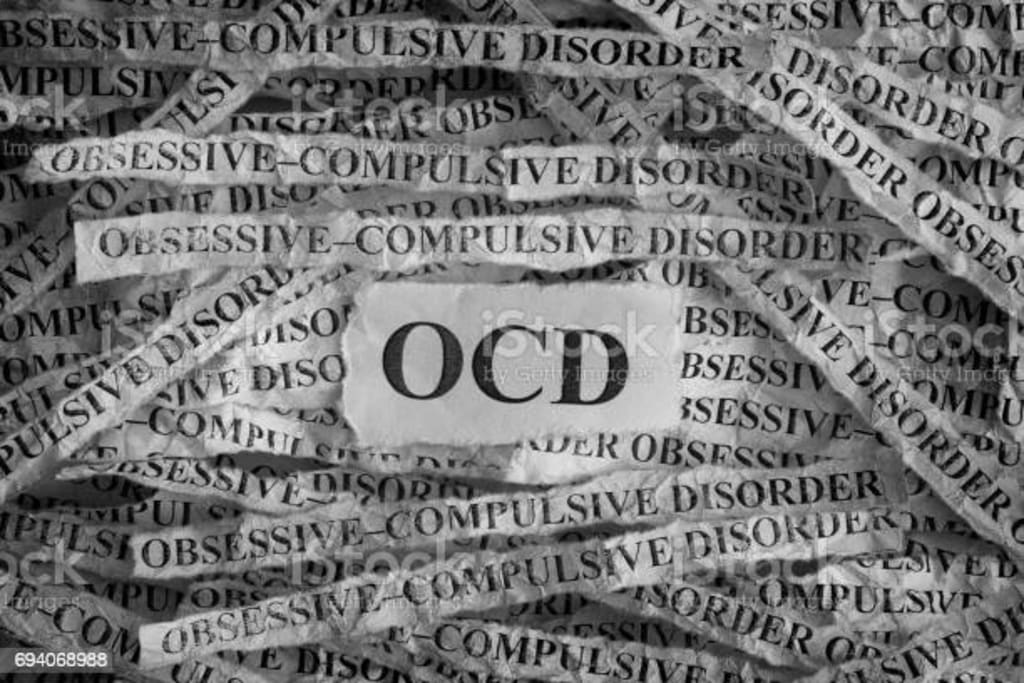
Overview
Undesirable contemplation and fears (fixations) that lead you to do monotonous behaviors (compulsions). These fixations and compulsions meddled with day-by-day exercises and cause critical trouble, OCD fixations are rehashed, tireless and undesirable considerations, inclinations, or pictures that are meddlesome and cause trouble or uneasiness. You might attempt to disregard them or get freed of them by performing a compulsive behavior or custom
Questioning and having trouble enduring instability
Forceful or awful contemplation almost losing control and hurting yourself or others
Undesirable contemplations, counting animosity, or sexual or devout subjects
vital exercises the individual values.
Introduction
Fixations are considerations, pictures, or driving forces that happen over and over once more and feel the exterior of the person's control. People with OCD don't need to have these contemplations and discover them exasperating. In most cases, individuals with OCD realize that these considerations are irrational. Fixations are ordinarily gone with strong and awkward sentiments such as fear, nausea, instability, and question, or a feeling that things have to be wiped out in a way that's “just right.” Within the context of OCD, fixations are time-expanding and get in the way of vital exercises the individual values. This last portion is amazingly imperative to be beyond any doubt decides whether somebody has OCD — a mental clutter — instead of an over-the-top identity characteristic.
The behaviors regularly anticipate or diminish a person's trouble related to a fixation briefly, and they are at that point more likely to do the same in the future. Compulsions may be over-the-top reactions that are specifically related to a fixation (such as over-the-top hand washing due to the fear of defilement) or activities that are unrelated to the fixation. Within the most serious cases, a consistent reiteration of ceremonies may fill the day, making an ordinary schedule incomprehensible.
Cases of compulsions:
Over the top showering, brushing teeth or toileting
Rehashed cleaning of family objects
Requesting or organizing things in a specific way
More than once checking locks, switches, machines, entryways,
Continually looking for endorsement or consolation
Customs related to numbers, such as tallying, rehashing, unreasonably preferencing, or dodging certain numbers
Individuals with OCD may moreover dodge certain individuals, places, or circumstances that cause them trouble and trigger fixations and/or compulsions. Avoiding these things may advance impede their capacity to operate in life and may be inconvenient to other zones of mental or physical well-being.
Body Dysmorphic Clutter
The distractions and behaviors are meddlesome, undesirable, and time-consuming (happening, on normal, three to eight hours per day). The person feels driven to perform them and more often than not has trouble standing up to or controlling them. The distraction causes critical trouble or issues in everyday exercises such as work or social intelligence. This could run from maintaining a strategic distance from a few social circumstances to being confined and housebound. Body dysmorphic clutter is related to tall levels of uneasiness, social uneasiness, social shirking, discouraged temperament, and moo self-esteem. Muscle dysmorphia, a frame of body dysmorphic clutter, more common in guys, comprises distraction with the thought that one's body is as well little or as well overwhelming, or not strong sufficient. People with this shape of the clutter have a normal-looking body or are indeed exceptionally strong. A lion's share (but not all) slim down, work out, and/or lift weights unreasonably.
Trichotillomania (Hair-Pulling Clutter)
Trichotillomania, or hair-pulling clutter, includes an individual more than once pulling out they're possess hair, most commonly from the scalp, eyebrows, and eyelids.
Excoriation (Skin-Picking) Clutter
An individual with excoriation (skin-picking) clutter, too known as dermatillomania, more than once picks at one's possess skin sufficiently to cause injuries. The skin-picking behavior causes noteworthy trouble or issues in work, social intuition, or other exercises. It can cause sentiments of the misfortune of control, shame, and disgrace and can lead to avoiding social circumstances. People with excoriation clutter have more often than not made rehashed endeavors to diminish or halt skin picking.
Treatment:
Patients learn that their dreadful considerations are fair considerations. Individuals learn that they can adapt to their contemplations without depending on ceremonial behaviors, and their uneasiness diminishes over time. Utilizing evidence-based rules, specialists and patients regularly collaborate to create a presentation arrangement that slowly moves from lower uneasiness circumstances to higher uneasiness circumstances. Few individuals with OCD may not concur to take an interest in CBT since of the starting uneasiness it inspires, but it is the foremost effective instrument accessible for treating numerous sorts of OCD.
Medicine
A lesson of solutions known as specific serotonin re-uptake inhibitors (SSRIs), regularly utilized to treat sadness, can too be compelling within the treatment of OCD. The SSRI measurement utilized to treat OCD is regularly higher than that utilized to treat depression. Patients who don't react to one SSRI pharmaceutical some of the time react to another. The greatest advantage as a rule takes six to twelve weeks or longer to be completely obvious. Patients with mellow to direct OCD indications are ordinarily treated with either CBT or pharmaceutical
Neurosurgical treatment
Profound brain stimulation, which includes an embedded gadget within the brain, has information to support the viability and does not forever crush brain tissue as exhausted a capsulotomy. It is still exceedingly intrusive and complex to manage, and there are constrained suppliers and clinic frameworks prepared to offer this treatment and, able to supply the long-term back required by DBS patients.
Conclusion
The emotions related to a behavior moreover demonstrate whether it is compulsive. On the off chance that you're fair a stickler for subtle elements or like to have things perfectly organized, you might consider these things to be “compulsive” behaviors, but that doesn't fundamentally cruel they are indications of OCD. In these cases, “compulsive” alludes to a personality characteristic or something around yourself that you are just really inclined toward or like.
About the Creator
umamanidrah
Hello to all, My name is Umama Nidrah and by profession I'm a physiotherapist and I am seeking for Article writing , Blog writing that is related to health with some interesting initiatives which are also uptodate.






Comments
There are no comments for this story
Be the first to respond and start the conversation.